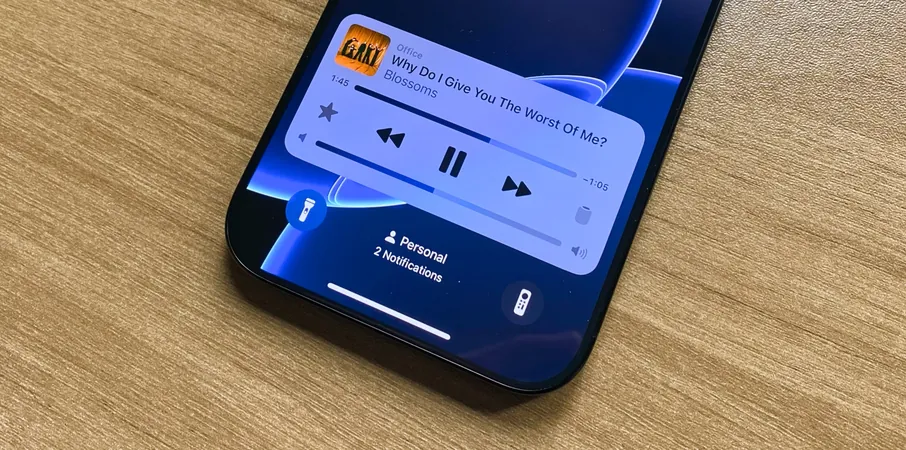
Apple’s Controversial Auto-Reboot Feature is Frustrating Authorities – Discover How It Works!
2024-11-15
Author: Wei
In a bid to enhance security, Apple has unveiled significant upgrades to the iPhone's anti-theft measures with the introduction of iOS 18. Users can now utilize Face ID to lock and hide sensitive apps, ensuring that vital personal data remains protected from unauthorized access. This feature specifically targets important applications like banking, photos, and emails, and proves essential in preventing scams.
However, there's another feature that has recently come to light, stirring up concerns among law enforcement. As highlighted by 404 Media, officers encountered peculiar challenges with iPhones unexpectedly rebooting in what are being described as "mysterious circumstances." It turns out that iOS 18 introduces an inactivity reboot or auto-reboot feature that prompts the device to restart after a predetermined period of inactivity.
Tech researcher Jiska Classen brought this behavior to the forefront on X (formerly Twitter), demonstrating the auto-reboot in action on an iPhone running the iOS 18.2 beta version. In her experiment, she showcased how an iPhone, if left untouched and unlocked, automatically restarts after a staggering 72 hours. Classen explained that this inactivity reboot returns the iPhone to a state termed "Before First Unlock," effectively locking the encryption keys within the Secure Enclave Processor. This means that even if thieves keep the phone powered on, they will struggle to access the data using outdated forensic tools.
While this feature significantly complicates matters for law enforcement, Classen emphasized that it does not entirely block access to the data. "Three days is still ample time for criminals to coordinate with professional analysts," she stated, suggesting that despite the added layer of protection for users, it may not prove insurmountable for those trying to retrieve information from seized devices.
Moreover, Apple has taken a proactive stance by encouraging users to enable a newly highlighted feature known as Stolen Device Protection, initially hidden in iOS settings. As criminals become increasingly sophisticated, this feature aims to provide added security and peace of mind for users.
This development raises critical questions about the balance between user security and law enforcement access, paving the way for a heated debate on privacy versus public safety. With Apple at the forefront of protective technological innovations, will these features remain as safeguards for the average user, or will they create loopholes that criminals can exploit? Only time will tell, but one thing is for sure: Apple's latest moves are certainly making waves in both tech and law enforcement circles!

 Brasil (PT)
Brasil (PT)
 Canada (EN)
Canada (EN)
 Chile (ES)
Chile (ES)
 España (ES)
España (ES)
 France (FR)
France (FR)
 Hong Kong (EN)
Hong Kong (EN)
 Italia (IT)
Italia (IT)
 日本 (JA)
日本 (JA)
 Magyarország (HU)
Magyarország (HU)
 Norge (NO)
Norge (NO)
 Polska (PL)
Polska (PL)
 Schweiz (DE)
Schweiz (DE)
 Singapore (EN)
Singapore (EN)
 Sverige (SV)
Sverige (SV)
 Suomi (FI)
Suomi (FI)
 Türkiye (TR)
Türkiye (TR)